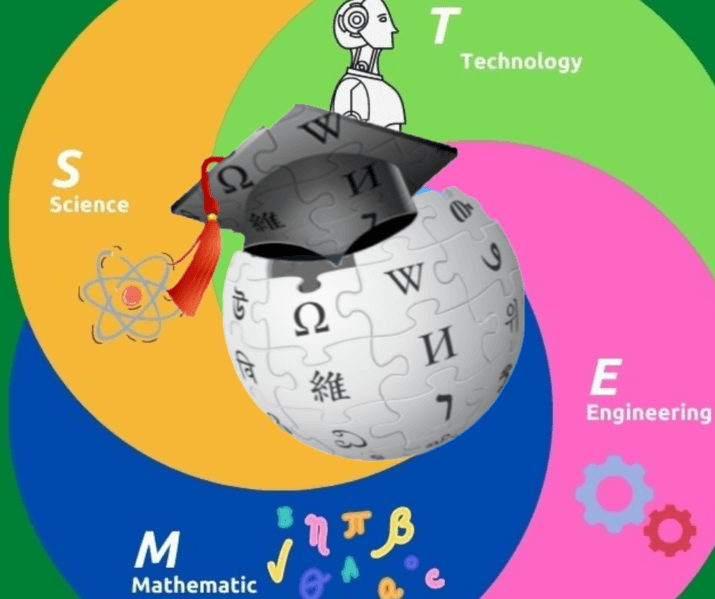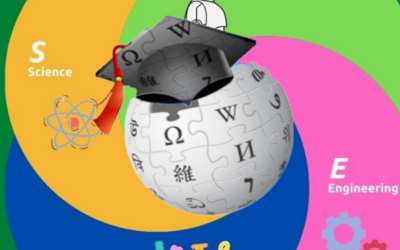If you’re intending to study at a US university, you might have come across “STEM-designated” programs.
You might have probably wondered “What, exactly, is a STEM-designated program?” and “How does STEM designation benefit me as an international student?”
Let’s explore the answers to these questions. We’ll explain what STEM-designation means, why it matters to you as an international student, and direct you on where to find STEM-designated degree programs.
What Is STEM Designation?
STEM designation means that a program is approved by the United States Department of Homeland Security (DHS) for a two-year extension on the initial one-year Optional Practice Training (OPT) period that international students are given to work in the U.S.
STEM-designated programs are recognized by the government for their focus on science, technology, engineering, and math (STEM) topics.
International and domestic students have access to a list of STEM-designated programs, which is compiled based on the U.S. Department of Education’s National Center for Education Statistics (NCES) definition of a science, technology, engineering, and math field.
This list, which is periodically updated, is used to determine which university programs qualify for STEM designation.
Why Is STEM Important?
STEM programs are designed to help learners develop skills such as critical thinking, innovation, scientific literacy, and collaboration. Such skills develop students into well-paying, high-tech jobs.
Data from the American Engineering Association shows that STEM graduates earn about 87% more than their non-STEM peers. Even when they end up in non-STEM occupations, STEM majors earn more than their peers who don’t hold STEM degrees.
As in other parts of the world, there’s a shortage of STEM professionals in the US. According to a report by the National Association of Manufacturing and Deloitte, the United States will have to fill 3.5 million STEM jobs by 2025. The report estimates that more than 2 million of those STEM jobs are going unfilled because of the lack of highly skilled candidates to meet the demand.
In addition, according to a 2018 report by Bullhorn, 73% of firms serving manufacturing industries, and 65% of those in IT, finance, and insurance fields listed skill shortages as one of their top challenges.
STEM programs in universities are crucial in producing the professionals needed to fill the gap in supply and aid in the US’s economic growth and overall competitiveness in the global market.
Why Does STEM Designation Matter to International Students?
Do you intend to live and work in the US after graduating? If so, choosing a STEM-designated program is a great idea.
STEM-designated programs provide significant immigration benefits to international students, allowing them to live and work in the US for up to 3 years (36 months) after graduation.
Normally, all F-1 student visa holders are allowed to work in the US for a period of up to 12 months—a period which is known as Optional Practical Training” (OPT).
Within 60 days of the expiration of the OPT period, students with non-STEM degrees must return to their home countries. However, STEM graduates qualify for an additional 24 months of work authorization. What’s more, international students can use the OPT extension twice in a lifetime.
In addition, international students with STEM degrees are more attractive to employers. An additional 24 months of work eligibility enables employers to realize a return on investment on what they spent on the recruitment and training process.
Graduate programs in organizations can span 2 to 3 years as candidates are expected to gain experience in different departments. Insufficient work eligibility prevents many employers from considering international students for such programs, even if they’re well-qualified.
Partly due to STEM OPT extension, the number of international students in the US in STEM majors has risen in recent years. According to the 2019 Open Doors Report on International Education, 223,085 international students participated in the OPT program—a 10% increase over the previous year.
Non-Traditional STEM-Designated Degrees
As one would expect, most of the programs that qualify for STEM designation are in traditional science, technology, and mathematics fields. These are degrees associated with fields such as Computer Science, Mathematics, Statistics, Biology, and Engineering.
However, some programs in popular non-traditional STEM majors such as Accounting, Business, Economics, Design, Architecture, Environment, Forestry, Psychology, and Sociology also qualify for STEM OPT extension.
At the graduate level, most Master of Science (MS) degrees are automatically STEM-designated. In addition, some universities offer specialized STEM-designated Master of Business Administration (MBA) programs.
When deciding which major to pursue your studies in the U.S, it’s advisable to check which programs qualify for STEM designation in the university you want to attend.
How Do I Know If a Program is STEM-Designated?
There’s a wide range of college and university programs that qualify for STEM designation. However, even if a college offers a program that appears on the list, it doesn’t guarantee that the program has qualified for STEM designation.
Unfortunately, most universities don’t provide a comprehensive list of their STEM-designated programs on their websites. This can be frustrating when you’re searching for STEM-designated programs in the US.
At 8B, we endeavor to build a database where international students can easily access STEM-designated programs in U.S colleges and universities.
Those interested in STEM-designated programs should also reach out to the university’s international students’ office or the admissions department to check whether desired programs are STEM-eligible.
STEM Designation Frequently Asked Questions
What does STEM Designation mean?
STEM designation means that a program qualifies for a 24-month OPT extension on the initial one-year Optional Practice Training (OPT) period that international students are given to work in the U.S.
Why are STEM-designated degrees important to international students?
Stem-designated programs allow international students to work in the U.S for up to 36 months (3 years). The 24-month extension on the regular OPT period opens the door to eventually earning a work visa or possible U.S citizenship and provides a path to a lucrative career.
Is MBA a STEM degree?
No. MBA programs aren’t traditionally considered to be STEM degrees. However, many universities are now adding courses that qualify their MBA programs to be considered as STEM degrees.



